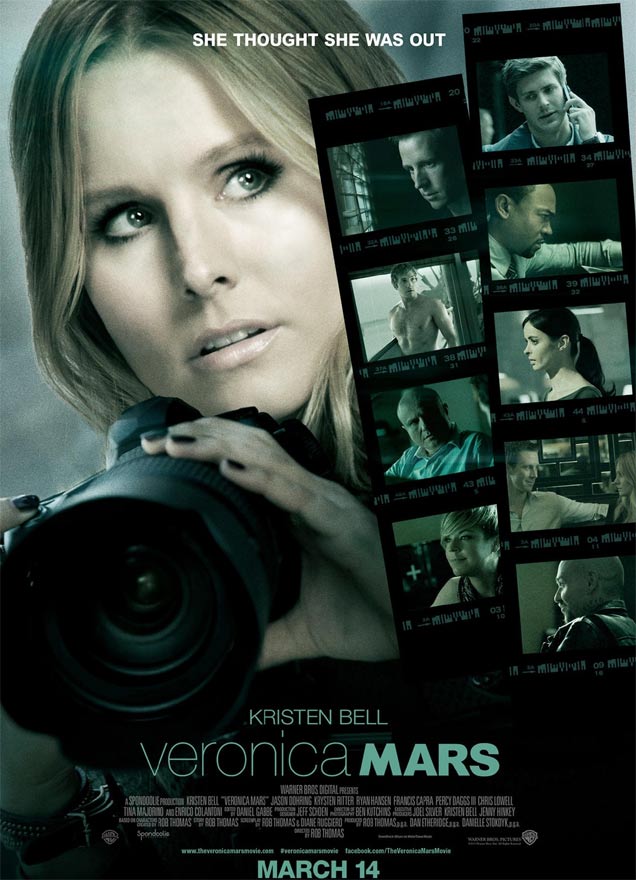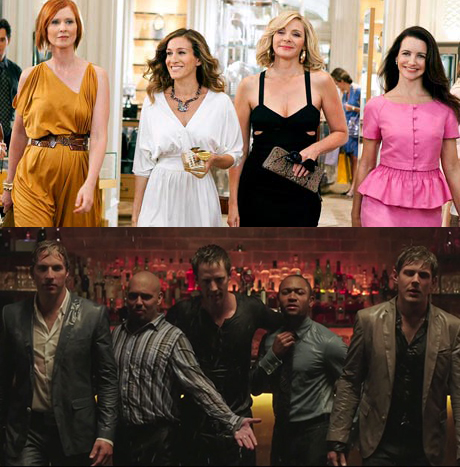 Glenn here to discuss Veronica Mars. Did you see it this weekend? Maybe you streamed it on demand or (like me) trekked to a cinema to see it on the big screen and watch the crowd collectively laugh at the exploits of Neptune, California’s best young private detective. Either way, I find it hard to believe that anybody who loved the series wouldn’t also find the film a whole bunch of fun. I know I did, and even if it does spend a lot of its time providing lip service to fans, given its Kickstarter origins there was never any hope for a Twin Peaks: Fire Walk with Me style reinvention, you know? Not at all.
Glenn here to discuss Veronica Mars. Did you see it this weekend? Maybe you streamed it on demand or (like me) trekked to a cinema to see it on the big screen and watch the crowd collectively laugh at the exploits of Neptune, California’s best young private detective. Either way, I find it hard to believe that anybody who loved the series wouldn’t also find the film a whole bunch of fun. I know I did, and even if it does spend a lot of its time providing lip service to fans, given its Kickstarter origins there was never any hope for a Twin Peaks: Fire Walk with Me style reinvention, you know? Not at all.
Among those who admitted to not having seen the show prior to the film, many complained that it looked like a 100-minute extended 'very special episode' of a series. While it’s hard to argue that creator/director/writer Rob Thomas pushes the envelope for the new larger canvas, I almost feel like that's missing the point. But I find it interesting that many were calling into the question the notion of what makes something cinematic.
Did Thomas have to use teal and amber lens filters? I’m glad he didn’t. Did he have to use helicopters and pyrotechnics? I’m glad he didn’t. Did he have to edit it through a wood chipper and lose the wonderful sense of rhythmic rat-a-tat-tat banter between his wonderful ensemble that made the series so memorable? I’m glad he didn’t. Whatever technical yardsticks people use to denote “cinematic”, I don’t think it necessarily applied to Veronica Mars. I also doubt whether the film would have been the subject of such arguments if it was an entirely original property. Maybe people would spent more time admiring the dialogue than wondering why it’s not photographed like a Scorsese picture. This is, after all, a genuine independent movie that came into creation because audiences paid for it. Why fix what ain't broke? Are these what people are talking about when they say such things? I mean, if it is then maybe more films could stand to be a little less cinematic, if you know what I mean (hi, Need for Speed!)

The same thing happened to Sex and the City: The Movie if I recall, as many bemoaned it was just the same ol’ same ol’ crammed into feature length with little to distinguish it from the television series they had gotten more or less for free for seven years. I will be interested to see if the Entourage movie cops the same sort of flak or whether its Hollywood setting gives it an automatic allowance to go big in a way that Veronica Mars never could. People paid for Veronica Mars, not Veronica Mars Goes to Hollywood (James Franco notwithstanding) or Veronica Mars Goes to Monte Cristo. Almost anything else than the movie we got would have felt like a betrayal.
With the advent of digital filmmaking tools making it easier for many people to make a movie, the definition of “cinematic” has gotten more and more blurred. I’ve used the term to complain about some movies before – mostly documentaries that look like 60 Minutes reports, yet expect people to pay $15 to go and see – but I don’t think this is one of those cases. Watching Veronica Mars unfold on the big screen, unaware of any of the plot twists that populate its busy second half, gave me a sense of glee the likes of which I rarely get in a movie theatre. Especially in this day and age where it feels legitimately impossible to not know the outcome of a movie. I felt thrilled and giddy like I assume Star Wars fan get when enjoying a new episode. That's just one version of what it means to be cinematic. How about yours?